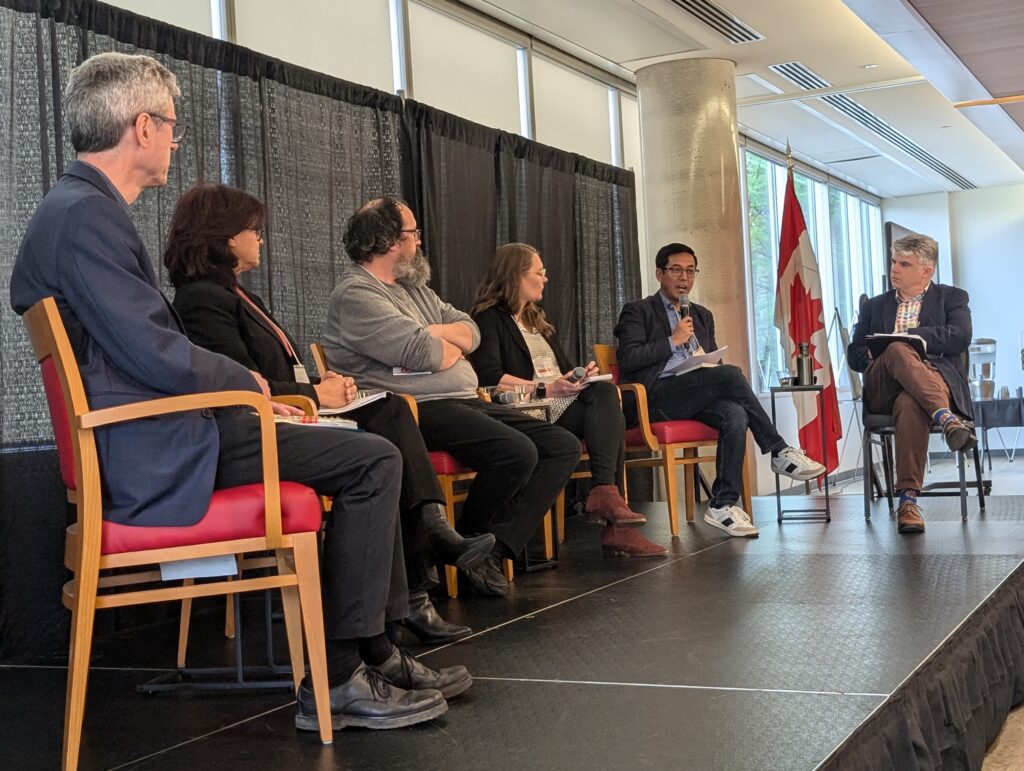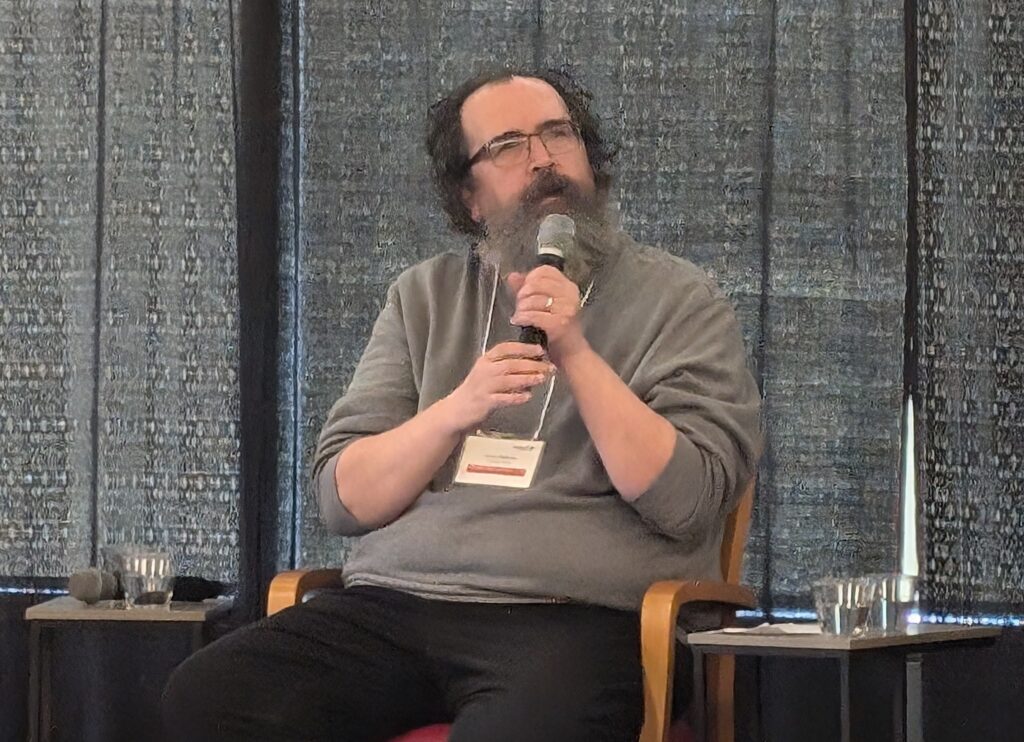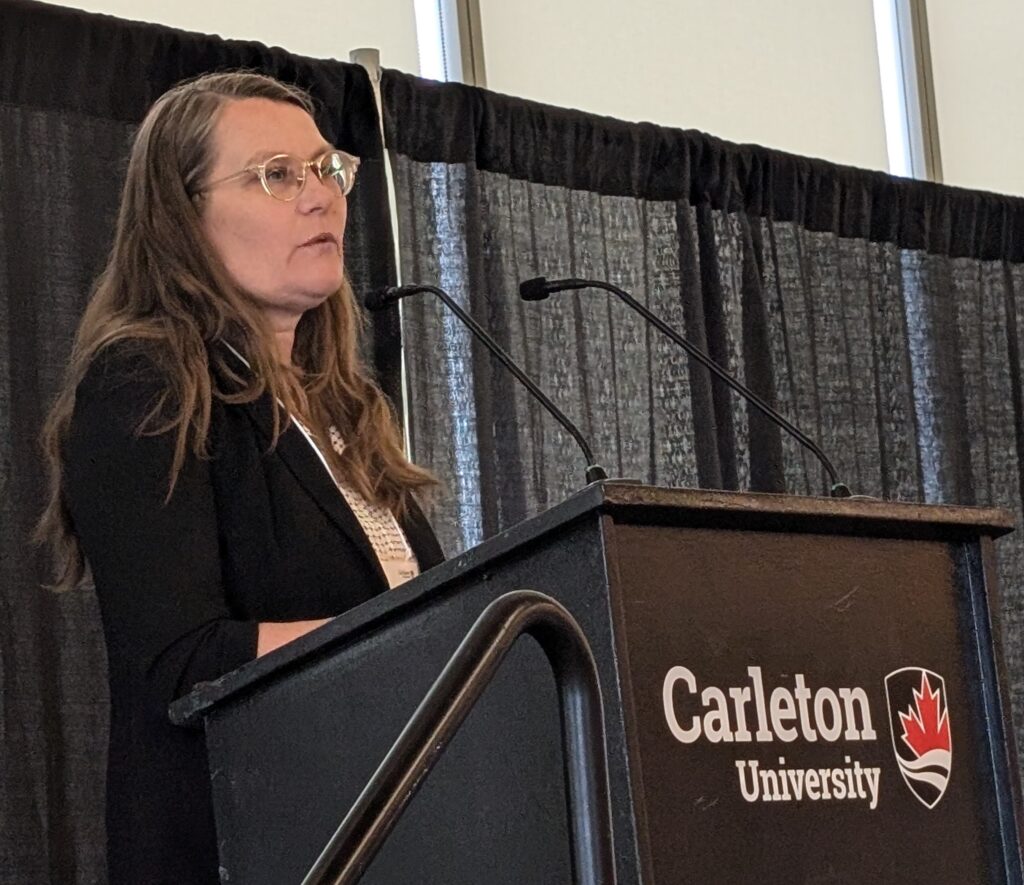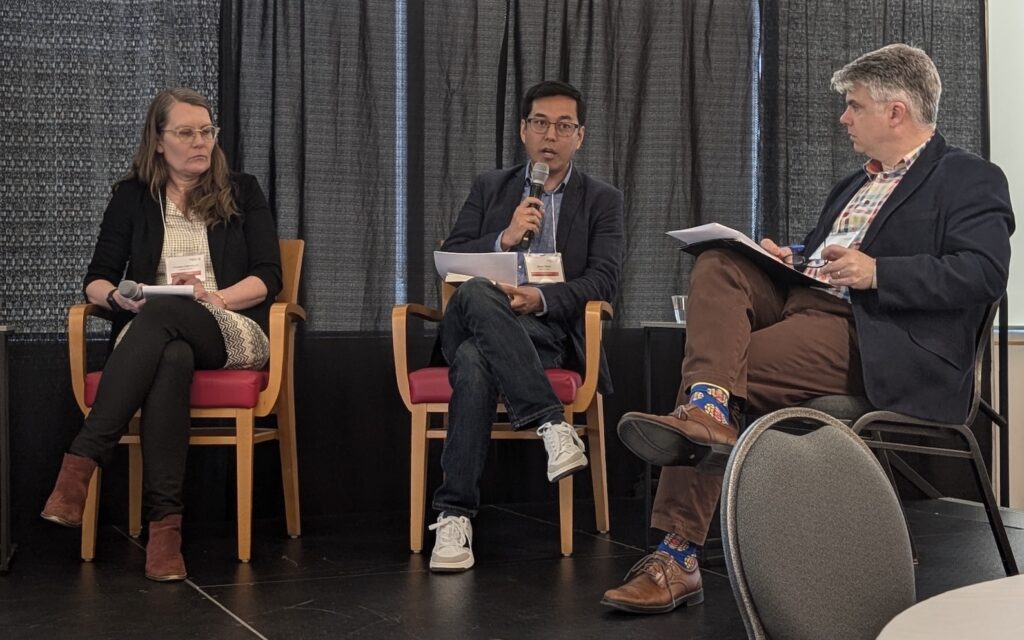
For many displaced and at-risk scholars who find themselves in Canada, the goal of advancing their academic careers — or even maintaining a hold on employment as a teacher and researcher — faces significant barriers. The theme was at the heart of a panel discussion Thursday at the Safe Havens and Knowledge Networks in Canada conference at Carleton University.
Dr. Evren Altinkas, an adjunct history professor at the University of Guelph, was forced to give up his professorship and leave his home country of Turkey after participating in an anti-government protest. He spoke compellingly about the harsh realities of pursuing an academic life as a displaced scholar in Canada.
Dr. Altinkas informally surveyed fellow panel members and conference attendees, many of whom are full-time professors at Canadian universities, asking how many classes they taught during the 2024-25 academic year. None had taught more than four.

“I taught 15 classes in three universities,” said Altinkas, drawing gasps from the crowd. He also works as a contract instructor at Waterloo-based Wilfrid Laurier University and Trent University in Peterborough.
“Back in Turkey, when I was getting my PhD, I was taught one thing: Publish or perish for the tenure-track position. Thirteen years ago, I was publishing three articles a year, but since 2013, I only published two articles because I (only) had time during the summer to do my research.”
Unfortunately, Altinkas’s story is not uncommon in the global scholars-at-risk community. And it’s a clear illustration of the inequity that initiatives such as the Safe Havens conference — and the many scholars-at-risk projects and institutions showcased at the May 22-23 event — are aiming to address.
One of those initiatives is the Placement, Preservation and Perseverance program, or PPP as it’s better known. A collaboration between the Ottawa-based International Development Research Centre — key funder of the project — and the University of British Columbia and Carleton University, PPP supports displaced and at-risk Afghan scholars and activists whose lives and careers have been thrown into turmoil because of the ongoing political and social upheaval in the Central Asian nation.
The IDRC project research coordinator, Dr. Elham Gharji, teaches in Carleton’s Law and Legal Studies Department and joined Altinkas and four others for the panel discussion: Dr. Christina Clark-Kazak, University of Ottawa professor of public and international affairs; McMaster University political science professor Tony Porter; McMaster PhD candidate Marufa Shinwari; and moderator James Milner, Carleton political science professor and director of LERRN: The Local Engagement Refugee Research Network, a 7-year, SSHRC-funded partnership between researchers and civil society actors primarily in Canada, Jordan, Kenya, Lebanon and Tanzania.

Echoing the lessons of the personal story shared by Altinkas, Gharji emphasized that displacement frequently leads to global knowledge loss. “The focus is on preserving knowledge networks, not in terms of ‘brain drain’ and ‘brain gain,’ because the brain drain (elsewhere) does not necessarily translate into brain gain here in Canada or in the Global North,” said Gharji. “What happens is actually a brain loss, because the vast majority of displaced scholars never get the opportunity to work in the sectors that they want to work in.”
There is no simple answer to the complex issues facing at-risk scholars, but to Porter, solutions are easier to find with a people-oriented approach. He describes a vision of creating a “network or platform that’s more centered not on the institutions, but on the people who are being displaced.” Porter said a model with that focus could lead to benefits such as “publishing opportunities, paid work for teaching research or other contracts, educational opportunities, and sharing of information on existing things in an archive for artists or other researchers.”
A more personal approach could also help combat another major issue that was highlighted by Shinwari. “Displacement of scholars is not only physically displaced actors,” she said. “Especially Afghan women scholars — they are (often) mentally displaced. They cannot continue thinking of their research or studies because of the turmoil and situation they are in.” Shinwari said that providing opportunities for displaced scholars to connect amongst themselves can help build a sense of community.
‘The focus is on preserving knowledge networks, not in terms of ‘brain drain’ and ‘brain gain,’ because the brain drain (elsewhere) does not necessarily translate into brain gain here in Canada or in the Global North. What happens is actually a brain loss, because the vast majority of displaced scholars never get the opportunity to work in the sectors that they want to work in.’
— Dr. Elham Gharji, IDRC project research coordinator
Easing access to higher education for displaced scholars — both students and more senior researchers — can help foster those connections. That is a central mission of UnborderED Knowledge, a University of Ottawa-led initiative. The project seeks to widen, deepen and institutionalize equitable access to education and research opportunities by focusing on three areas: Institutional opportunities and barriers, lived experiences of displaced students and research done by displaced scholars.

UnborderED Knowledge is led by Clark-Kazak, who said her research demonstrates the need for a change in thinking about the place of displaced scholars in Canadian academia, unlocking valuable academic research and insights that are currently being left on the table.
“I think it’s about changing the mind frame of not looking at it simply as a humanitarian effort,” Clark-Kazak said of the global effort to support scholars at risk. “Rather, recognize colleagues with knowledge and experience that we should be actively using.”


